SUMMARY
This is AI generated summarization, which may have errors. For context, always refer to the full article.
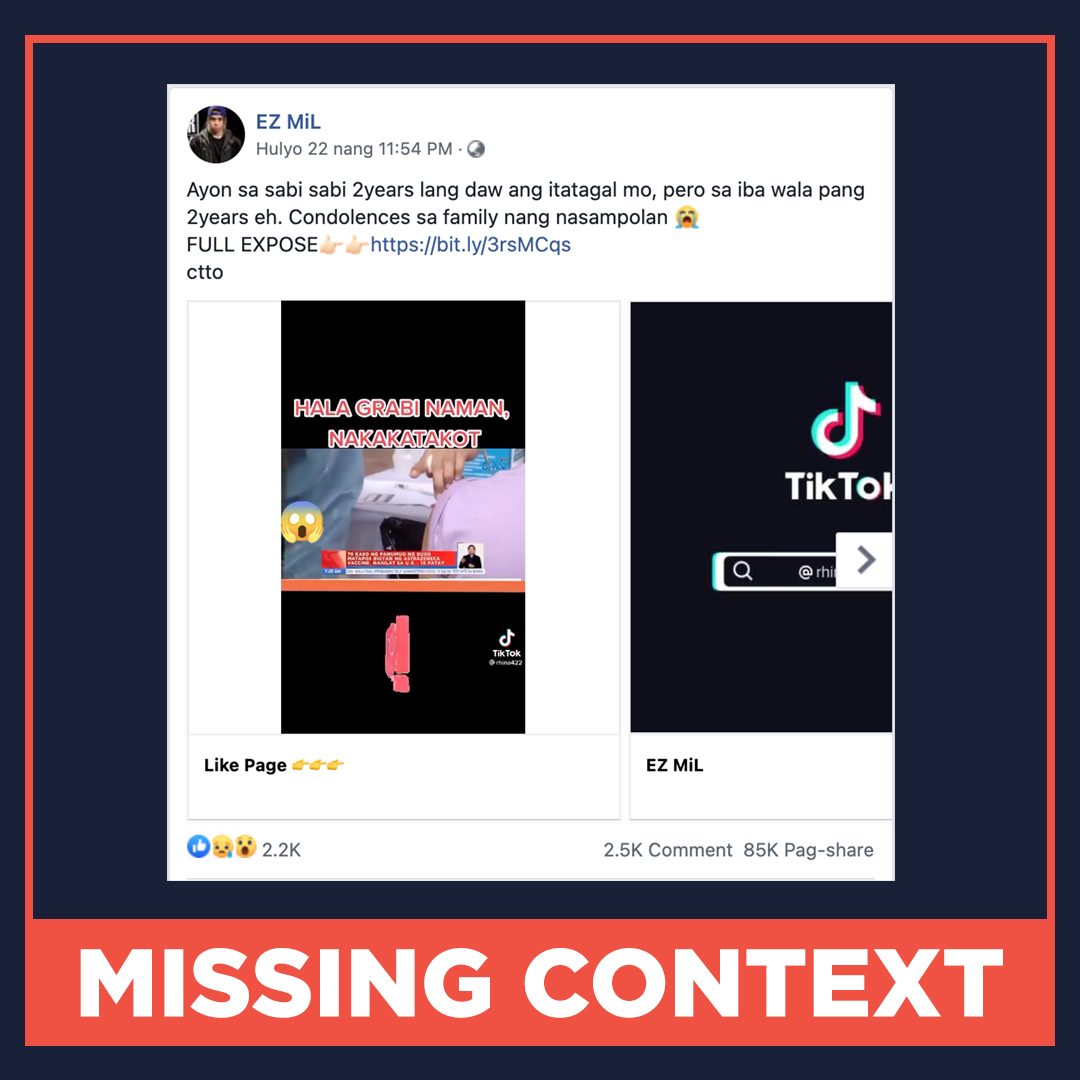
At a glance
- Claim: AstraZeneca’s COVID-19 vaccine causes deadly blood clots.
- Rating: MISSING CONTEXT
- The facts: While there is a possibility of blood clotting following vaccination of AstraZeneca’s coronavirus vaccine, studies show these cases are very rare. Health experts worldwide have concluded that the benefits of the vaccine outweigh the risks.
- Why we fact-checked this: Claim Check flagged the post for containing suspicious information. As of writing, the post has over 85,000 shares, 2,500 comments, and 2,200 reactions on Facebook.
Complete details
A Facebook post by page “EZ MiL” on July 26 claims that AstraZeneca’s COVID-19 vaccine causes deadly blood clots. The post includes a video from TikTok that contains a clip of a report about cases of blood clotting following vaccination of AstraZeneca’s coronavirus vaccine.
The page’s caption says, “Ayon sa sabi sabi 2years lang daw ang itatagal mo, pero sa iba wala pang 2years eh. Condolences sa family nang nasampolan.” (They say you will only last two years [after vaccination], but there are cases that didn’t even last two years. Condolences to the families of those who died because of this.)
Claim Check, Facebook’s monitoring tool that identifies potentially dubious posts shared on the platform, flagged the post for verification. It has over 85,000 shares, 2,500 comments, and 2,200 reactions on Facebook, as of writing.
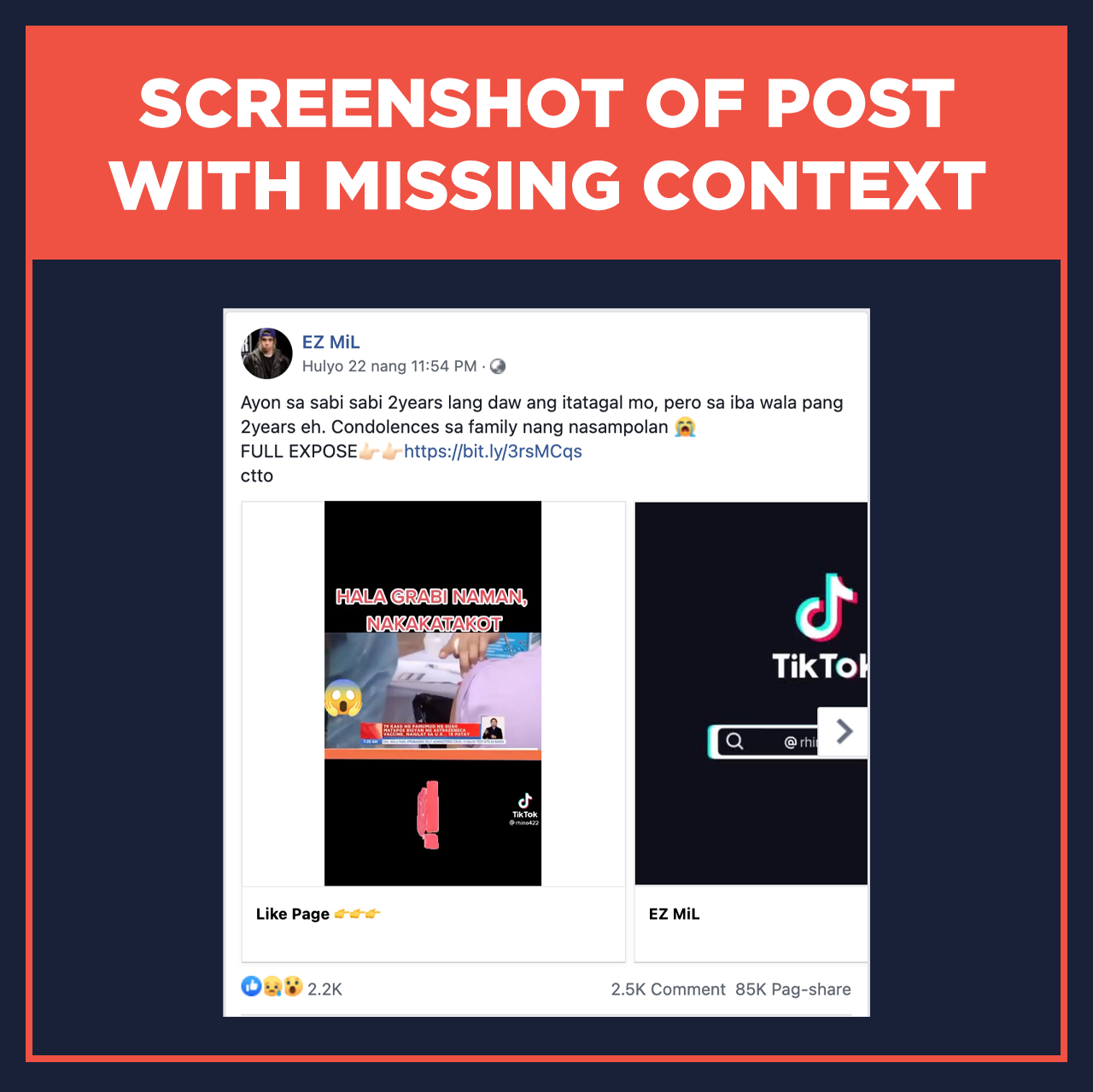
This is missing context.
The clip used in the TikTok video included in the post is an official report from GMA News that discusses the possibility of blood clotting following vaccination of AstraZeneca, but the same report says that experts have concluded that the benefits of the vaccine outweigh the known and potential risks.
The original clip can be found on the verified YouTube page of GMA News. It is from an April 8 news report from Unang Balita, GMA News’ morning news program.
The news report says that there are 79 recorded cases of blood clotting after vaccination of AstraZeneca in the United Kingdom, but also says these risks are “rare and unusual,” citing the European Medicines Agency (EMA). The EMA also says that and that the benefits of the AstraZeneca vaccine are “well established.”
On April 7, European and British medicine regulators said they had found possible links between AstraZeneca’s vaccine and reports of very rare brain blood clots. However, EMA chief executive June Raine said the benefits of the vaccine outweighed the risks for the vast majority of people and those risks were “more finely balanced for younger people.”
Following this, the Philippines halted the use of AstraZeneca’s vaccine for people below 60 years old on April 8. The government then resumed vaccination using the brand on April 19, citing local and global experts in their unanimous recommendation to continue the use of AstraZeneca’s vaccine as safe and effective.
The Australian Government Department of Health says blood clotting from AstraZeneca’s vaccine may occur in around four to six people in every million after being vaccinated.
On July 28, a study funded by AstraZeneca said that there is a small risk of rare blood clots with low platelets after the first shot of its COVID-19 vaccine and that there are no extra risks after the second. The recommended interval between the first and second doses of AstraZeneca’s vaccine is 8 to 12 weeks.
The claim that COVID-19 vaccines will kill vaccinated people within two years has been debunked before.
As of Wednesday, August 11, a total of 7,273,940 doses of AstraZeneca’s vaccine have been delivered to the Philippines. There have been no reports of deaths directly caused by COVID-19 vaccines in the country so far. – Pauline Macaraeg/Rappler.com
Keep us aware of suspicious Facebook pages, groups, accounts, websites, articles, or photos in your network by contacting us at factcheck@rappler.com. Let us battle disinformation one Fact Check at a time.
Add a comment
How does this make you feel?
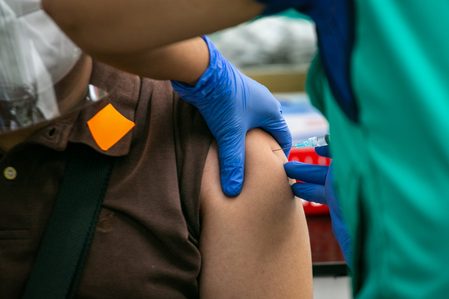

![[Rappler’s Best] US does propaganda? Of course.](https://www.rappler.com/tachyon/2024/06/US-does-propaganda-Of-course-june-17-2024.jpg?resize=257%2C257&crop=236px%2C0px%2C720px%2C720px)

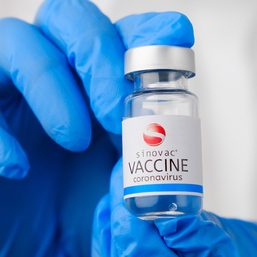
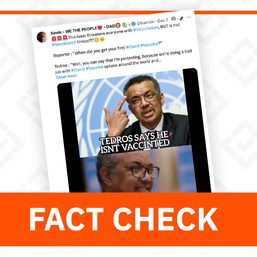
There are no comments yet. Add your comment to start the conversation.